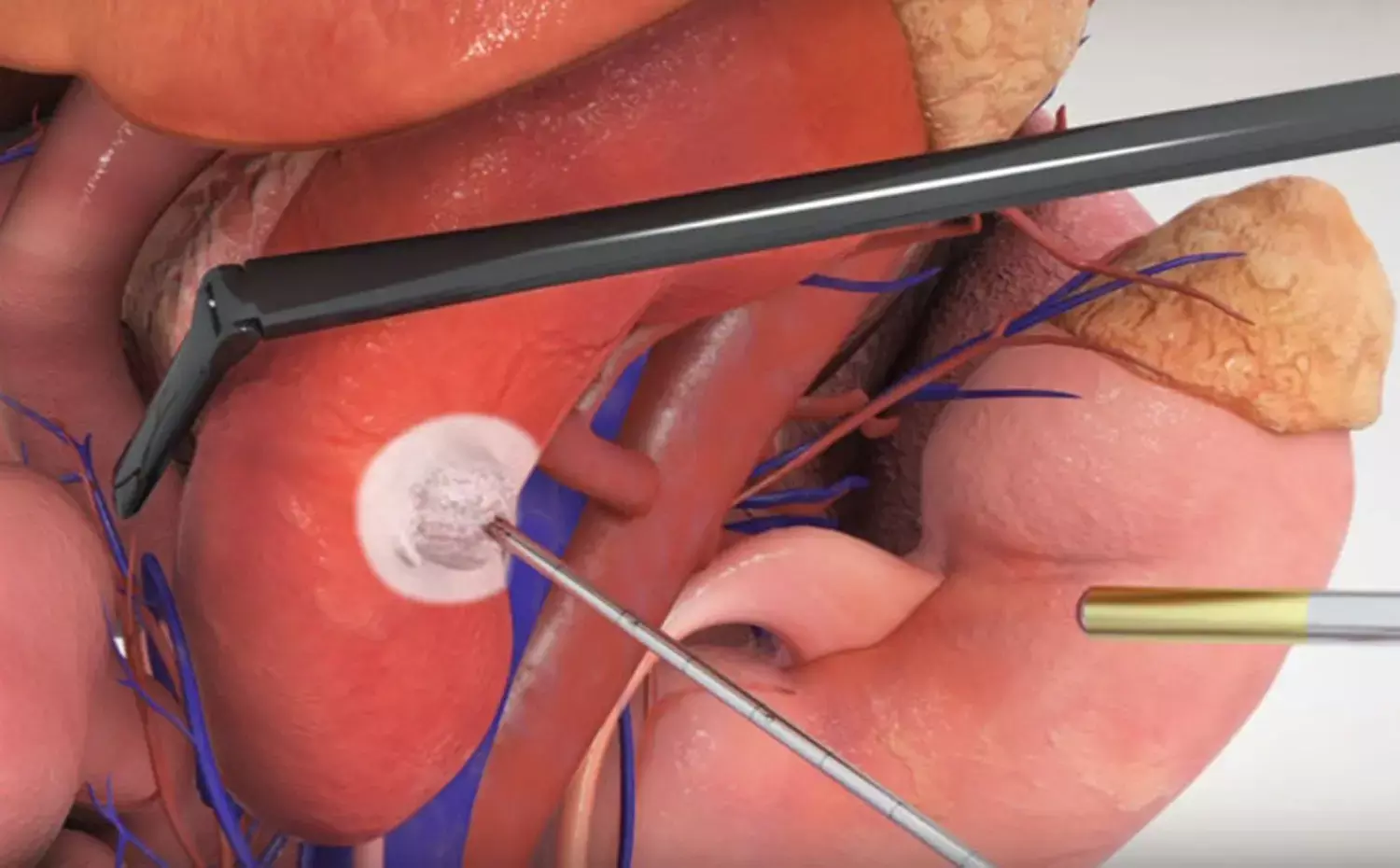- Home
- Medical news & Guidelines
- Anesthesiology
- Cardiology and CTVS
- Critical Care
- Dentistry
- Dermatology
- Diabetes and Endocrinology
- ENT
- Gastroenterology
- Medicine
- Nephrology
- Neurology
- Obstretics-Gynaecology
- Oncology
- Ophthalmology
- Orthopaedics
- Pediatrics-Neonatology
- Psychiatry
- Pulmonology
- Radiology
- Surgery
- Urology
- Laboratory Medicine
- Diet
- Nursing
- Paramedical
- Physiotherapy
- Health news
- Fact Check
- Bone Health Fact Check
- Brain Health Fact Check
- Cancer Related Fact Check
- Child Care Fact Check
- Dental and oral health fact check
- Diabetes and metabolic health fact check
- Diet and Nutrition Fact Check
- Eye and ENT Care Fact Check
- Fitness fact check
- Gut health fact check
- Heart health fact check
- Kidney health fact check
- Medical education fact check
- Men's health fact check
- Respiratory fact check
- Skin and hair care fact check
- Vaccine and Immunization fact check
- Women's health fact check
- AYUSH
- State News
- Andaman and Nicobar Islands
- Andhra Pradesh
- Arunachal Pradesh
- Assam
- Bihar
- Chandigarh
- Chattisgarh
- Dadra and Nagar Haveli
- Daman and Diu
- Delhi
- Goa
- Gujarat
- Haryana
- Himachal Pradesh
- Jammu & Kashmir
- Jharkhand
- Karnataka
- Kerala
- Ladakh
- Lakshadweep
- Madhya Pradesh
- Maharashtra
- Manipur
- Meghalaya
- Mizoram
- Nagaland
- Odisha
- Puducherry
- Punjab
- Rajasthan
- Sikkim
- Tamil Nadu
- Telangana
- Tripura
- Uttar Pradesh
- Uttrakhand
- West Bengal
- Medical Education
- Industry
Microwave ablation effective treatment option for small renal masses, finds study

UK: Microwave ablation (MWA) is a safe and effective treatment method and can be considered for the management of small renal masses in patients with suspected renal cell carcinoma (RCC), a recent study has found. The results are published in the journal BJU International.
Joseph B. John, The Royal Devon and Exeter NHS Foundation Trust, Exeter, UK, and colleagues reported a tertiary referral centre's experience of microwave ablation (MWA) for suspected renal cell carcinoma, describing complications and oncological outcomes.
For the purpose, the researchers maintained consecutive MWA procedures (n = 113) for renal masses on a prospective database. Data describing patient, disease, procedure, complications, and oncological outcomes were analysed. The median age was 68 years, 73% were male, and the median Charlson Comorbidity Index was 0.
Key findings of the study include:
- The median (interquartile range [IQR]) tumour diameter was 25 mm.
- In all, 95% had renal mass biopsy, with histologically confirmed cancer in 75%.
- The median (IQR) R.E.N.A.L. (Radius, Exophytic/Endophytic, Nearness, Anterior/Posterior, Location) nephrometry score was 7 (6–8).
- The median ablation time was 6 min and length of stay was 1 day for 95% of the patients. Clavien–Dindo complication Grades I, II, IIIb and IV occurred in 18%, 1.8%, 0.9% and 0.9%, respectively.
- The median follow‐up was 12 months and the median (IQR) renal function change was −4%.
- 0.9% had local recurrence, treated with re‐ablation; two developed metastatic progression; and 1.8% had indeterminate findings on follow‐up (one lung nodule and one possible local recurrence), managed with ongoing protocolised computed tomography surveillance.
- Post‐procedure complications were associated with total ablation time (odds ratio [OR] 1.152/min) and total ablation energy (OR 1.017/kJ).
"We describe the largest UK series of MWA treatment for T1a/small T1b renal masses to date. MWA was well tolerated, with 95% discharged the following day and low complication/re‐admission rates," wrote the authors. "Current follow‐up demonstrates favourable disease control. MWA appears to be safe and effective and should be considered in future prospective comparisons of treatments for T1a/small T1b renal masses."
Reference:
The study titled, "Percutaneous microwave ablation of renal masses in a UK cohort," is published in the journal BJU International.
DOI: https://bjui-journals.onlinelibrary.wiley.com/doi/abs/10.1111/bju.15224
Dr Kamal Kant Kohli-MBBS, DTCD- a chest specialist with more than 30 years of practice and a flair for writing clinical articles, Dr Kamal Kant Kohli joined Medical Dialogues as a Chief Editor of Medical News. Besides writing articles, as an editor, he proofreads and verifies all the medical content published on Medical Dialogues including those coming from journals, studies,medical conferences,guidelines etc. Email: drkohli@medicaldialogues.in. Contact no. 011-43720751


